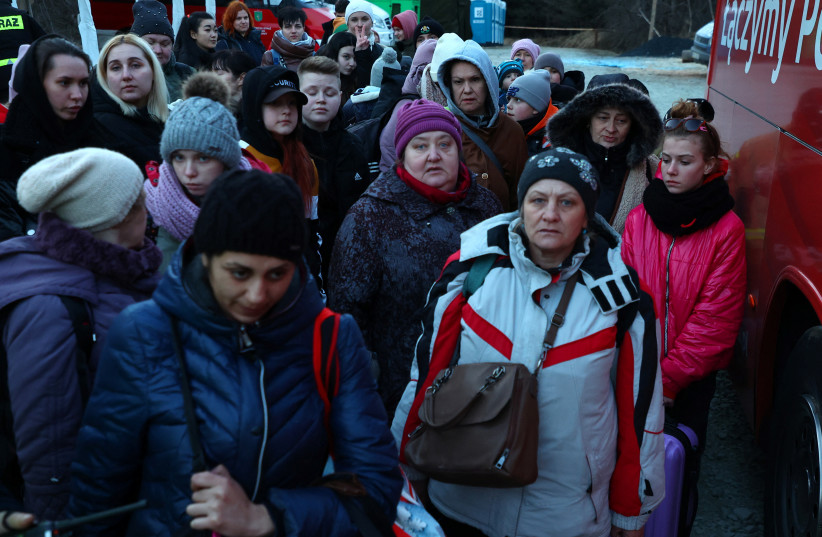Vine Ventures, a New York City-based venture capital firm, has donated hundreds of mattresses, pillows, blankets and towels, as well as food and funding for transportation for the thousands of refugees that are now entering Moldova.
The aid is being arranged in collaboration with the Moldovan Jewish community in its efforts to assist refugees arriving from Ukraine. The donations, spearheaded by co-founders Eric Reiner and Daniel Povitsky, are being used to equip three temporary placement centers.
“With thousands of Ukrainians being displaced from their homes due to the conflict, it is inspiring to see good-hearted people working on the frontlines extending a helping hand to those in need,” according to Reiner, Vine’s managing partner. “Their compassion gives me hope for humanity, and I’m honored to take part in this effort.”
Thousands of refugees have fled to Moldova from its besieged neighbor since the conflict began on February 24, most of them women, children and the elderly.
Jewish organizations, including the Jewish Community of the Republic of Moldova (JCRM), JDC Chisinau, JCC KEDEM, and other religious/volunteer-based organizations are providing assistance. A hotline was established to coordinate the effort, and all refugees – Jews and non-Jews – receive aid with information, temporary accommodations, food and personal hygiene products.

“My heart is with all Ukrainians forced to leave their homes,” Povitsky said. “As the son of immigrants who fled an oppressive USSR regime to Israel, it is devastating to witness the effects of displacement. That is why I have a deep gratitude for countries, communities and organizations welcoming those in need with open hearts and minds.”
JCRM senior representatives opened the Dacia Marine recreation center in the coastal town of Vadul lui Voda in Chisinau for Jewish refugees. Raisa Alexandrovna and Valery Fridrikhovich, an elderly refugee couple, are now living in the town after they were forced to leave their home in Odessa. They were told to be at the bus station on February 28 by 6 a.m.– they only brought essential documents and clothing with them. Alexandrovna shared their story:
“Our Jewish community organized transportation from Odessa,” she said. “We chose to go, knowing that the situation would only get worse if we waited. Customs let us through quickly as members of the Jewish community – I am Jewish, my husband is not.
“As soon as we arrived in Moldova we were given food and clothing. We have a comfortable room with everything we need, live rent-free, and they are taking good care of us,” Alexandrovna said. “When we have trouble getting to the second floor, they bring food and tea to the room; when it is cold, they bring us a heater and more blankets.
“We are waiting for our son-in-law to take us to Canada so we can be with our children and grandchildren,” the newly displaced elderly woman said. “It turns out that there are so many good people who are ready to help and share their hearts. It gladdens my heart and feeds my soul to see such people in the world.”
Among the refugees was a family from Kyiv who were separated by the war. Two girls, ages 13 and 15, studied at a religious Jewish school in the Ukrainian capital, and their parents lived in a nearby town. Tatyana showed her small handbag and passport, all she managed to take with her in a hurry. “This is all I’m left with,” she repeated, in tears.
“I only had time to grab the most expensive thing with me,” said another refugee, a woman who held a repatriation check she received. “I didn’t want to leave, but it was for our safety,” she said, pointing to a small dog. “I’m scared, but I can’t imagine what it’s like for him.”
Moldova now has the largest concentration of refugees per capita, nearly four per thousand residents. Moldovan President Maia Sandu has appealed to the international community for help in dealing with the growing number of refugees streaming into his country from Ukraine.
